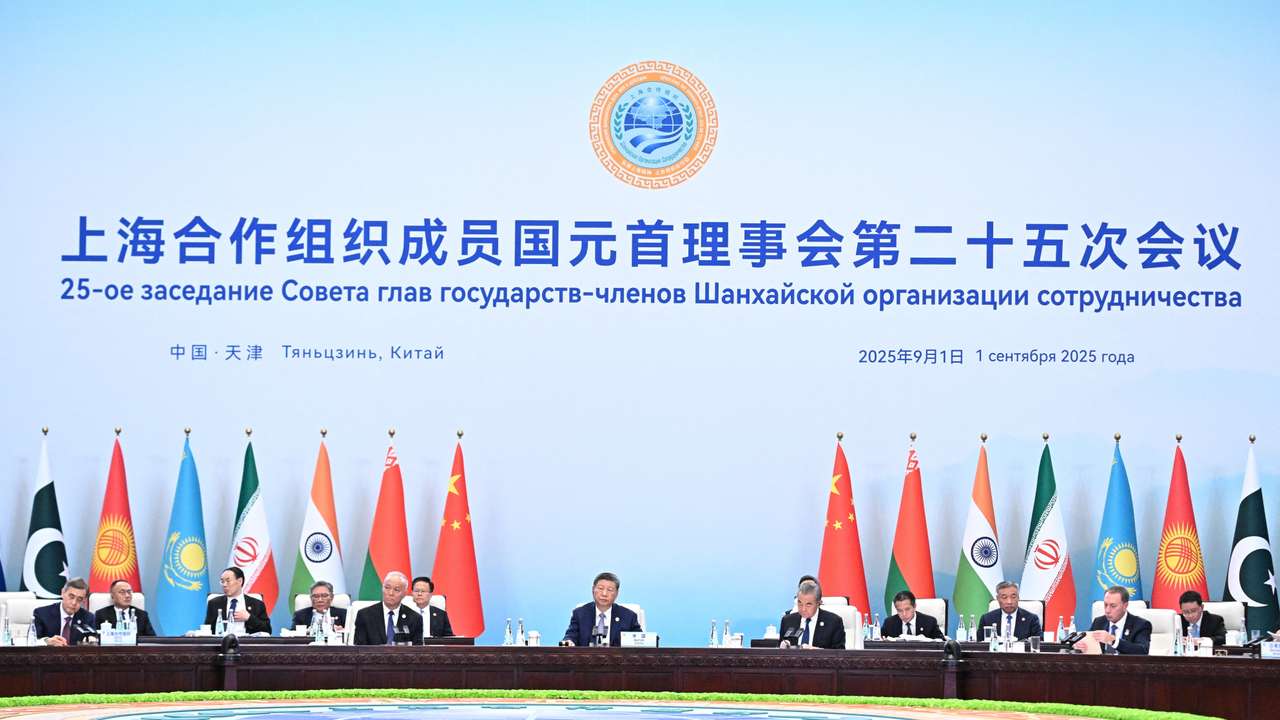5 key outcomes from the SCO summit in China

The Shanghai Cooperation Organisation (SCO) Summit in Tianjin brought together over 20 foreign leaders for discussions on global governance, security, and economic cooperation.
Chinese President Xi Jinping hosted the two-day gathering, which resulted in the signing of 20 key documents, including the “Tianjin Declaration” and a “Development Strategy until 2035.”
The high-stakes meeting, also attended by Indian Prime Minister Narendra Modi, showcased a united front among member states, viewed by analysts as a significant challenge to America's global leadership and a powerful demonstration of "Global South solidarity"
Xi Jinping calls for a multipolar world
Chinese President Xi Jinping emphasised a vision for "an equal and orderly multipolarisation" of the world and the establishment of a "more just and equitable global governance system".
He rejected what he termed a "Cold War mentality" and "hegemonism," positioning China as a force for global economic stability and an alternative to the Western-led international order.
Xi stated, "We should advocate an equal and orderly multipolar of the world, and a universally beneficial and inclusive economic globalisation and make the global governance system more just and equitable".
20 major documents signed
A total of 20 key documents were signed during the summit, including the Tianjin Declaration of the Council of Heads of State of the SCO and the Development Strategy of the SCO until 2035. Further agreements encompassed a cooperation program for countering extremist ideology within the SCO space for 2026–2030, a roadmap for energy cooperation development until 2030, and the establishment of an SCO Anti-Drug Centre and a Universal Centre for Countering Security Challenges and Threats.
Statements were also issued on strengthening cooperation in the digital economy, sustainable energy development, green industry, and further deepening international cooperation in the field of Artificial Intelligence (AI).
China’s economic pledges
China demonstrated its commitment to economic cooperation by pledging significant financial support to SCO member states. President Xi announced 2 billion yuan (approximately $280 million) in aid this year, along with an additional 10 billion yuan (approximately $1.4 billion) in loans to an SCO banking consortium over the next three years.
Xi called for leveraging "mega-scale markets" to boost trade and investment facilitation and proposed the swift establishment of an SCO Development Bank.
Russia defends Ukraine war
Russian President Vladimir Putin used the summit to address the war in Ukraine, asserting that Russia's attack did not trigger the crisis but was "a result of a coup in Ukraine, which was supported and provoked by the West," and further blamed "the West’s constant attempts to drag Ukraine into NATO". Putin praised the SCO for reviving "genuine multilateralism" and for "laying the political and socio-economic groundwork for the formation of a new system of stability and security in Eurasia," stating this system would move away from "outdated Eurocentric and Euro-Atlantic models".
SCO unity and Global South solidarity
The summit served as a critical platform for enhancing cooperation among SCO members, notably between China and India, amidst existing trade tensions, including US tariffs on India. Leaders, including Xi, Putin, and Indian Prime Minister Narendra Modi, engaged in discussions and were seen in close rapport, showcasing a united front that analysts view as a challenge to "America’s global leadership" and a demonstration of "Global South solidarity". India's Ministry of Foreign Affairs noted the importance of "mutual respect, mutual interest and mutual sensitivity" for stable relations and cooperation between India and China.
This story is written and edited by the Global South World team, you can contact us here.